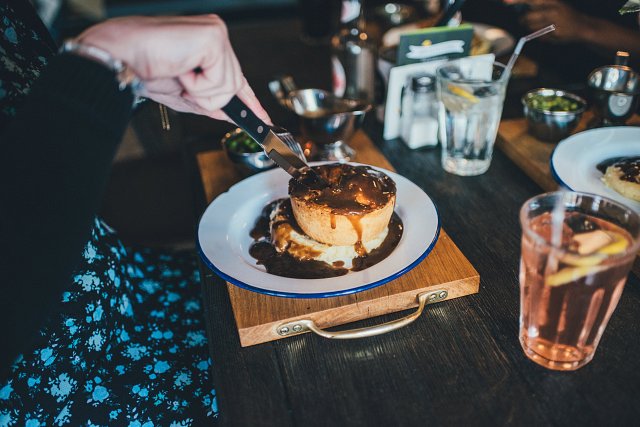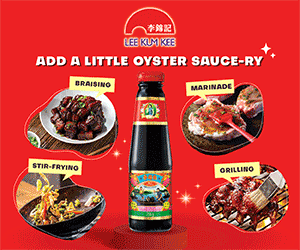The big interview: Pieminister

How did Pieminister become Britain’s best-selling premium pie brand in little under 20 years? Jane Renton talks to co-founder Jon Simon to find out...
There is something incredibly enduring about the British pie, though in the 90s its continuing mass appeal seemed far from guaranteed. In fact, all but a handful of the once ubiquitous pie and mash shops disappeared, along with pearly queens and cheeky cockney chappies.
The fact that pies are now a thing once more is down to the foresight, diligence and hard work of entrepreneurs such as Jon Simon. He, along with brother-in-law Tristan Hogg, Tristan’s sister, Romany, and Simon’s sister, have spearheaded the pie renaissance. Between them they have created Britain’s leading premium pie brand in supermarkets, and garnered an impressive array of top nationwide awards – a staggering 18 of them at the last count – along the way.
And there is more to come. Pieminister plans to open 100 restaurants in selected towns and cities over the next decade through a newly established franchising operation – with five new outlets being planned for this year alone. There are also equally ambitious plans for up to 300 digital pie restaurants.
While other businesses are thinking of retrenchment, the company is also gearing up for further expansion of its existing Bristol factory. This comes as part of a £7m investment that will potentially enable the business to quadruple existing output, as well as continuing to roll out new formats and food concepts.
“Pies are very reassuring,” says Jon. “In difficult times, people veer towards comfort food, don’t they?”

All that is true, but the return of the pie to the forefront of British cuisine involved a great deal more on the part of the unassuming businessman than simply rehashing firm old favourites. Anyone for Light as a Feta? It forms part of Pieminister’s latest filo pastry-based range designed to appeal to the calorie conscious. But like other more traditional Pieminister lines, it shares an uncompromising consistency and integrity when it comes to quality and ingredients.
Jon’s foray into the pie business was almost accidental, though a recent delve into his family history during Covid revealed a Gillard ancestor who owned a sizeable pie-making business in south London. His descendant, a former furniture and product designer, moved into hospitality while still in his 20s with a view to setting up and running bars. He did this with the help of his friend andsubsequent business partner, Tristan, a chef, who took over the running of his business’s kitchens.
Both men had travelled to Australia where they had been inspired by the creativity, as well as the popularity, that the humble pie was enjoying down under. Could they do something similar back home, they pondered. They decided they could. The bars were sold and Jon and Romany, who were expecting a child, moved with Tristan to Bristol, where brother and sister had grown up, to set up Pieminister in 2003.
“We did initially feel as if we were bringing proverbial coals to Newcastle, but what the Australians were doing effectively brought a very modern new twist to the humble pie,” says Jon. “Twenty years ago in the UK, vegetarianism, let alone veganism, had barely got off the ground, and neither had gluten-free, which we began to introduce from the outset.”
He confesses to initial “naivety”, but that naivety, if it can really be described as such, provided the DNA of Pieminister’s continuing product excellence and enduring success. He and Tristan opted for a vertically integrated business, undertaking their own manufacturing alongside their retail operation, whereas many such rival companies outsource to third-party food manufacturers.
“We were pretty naïve,” says Jon. “We just did what we knew, so we set up our own kitchen and started making our pies in much the same way as you would in your own home, except with the addition of a pie blocking machine.”
This approach, however, has paid off and continues to this day, despite earlier consideration of outsourcing their manufacturing operation. “We did discuss going out to larger manufacturers, but they just couldn’t do what we were doing,” explains Jon.
He and Tristan quickly realised that the only way they could grow their business, which this year is likely to achieve sales of about £20m, was to invest in their own bakery. “Because we made our pies in tins and baked them in a very traditional way, we realised we were getting a really superior product compared to everyone else,” Jon explains.
Within months of opening their bakery, the pair had managed to secure a stall at the prestigious and ultra-foodie Borough Market in London, something that many of their rival pie makers would no doubt have given their eye teeth for. “They have incredibly strict criteria,” says Jon. “They’d been approached by a number of piemakers, but had rejected them on the grounds that they didn’t have the right sourcing credibility. Borough Market really put us on the retail map.”
That breakthrough was followed by an increasing presence at music festivals, including at the largest one in the country. “Glastonbury was huge for us,” says Jon. “The year we were there was one of the worst and wettest summers. We were in the only dry section of the event – everywhere else was knee-deep in mud – so we actually ended up with enormous queues of people wanting to buy our pies throughout the weekend.”
That popularity has continued. Currently, about 30% of the Pieminister’s turnover is generated by its restaurant business, which currently runs 17 outlets, but which in future will be increasingly become dominated by franchiseses. Similarly, a further 30% is generated by retail sales in supermarkets, with a further 30% coming from independent customers and deli businesses, the remainder being generated by smaller customers, including contract caterers.
While the business, which employs 270 people, is holding up well, the market outlook remains difficult for most hospitality companies. In these conditions, Jon says, you have to be particularly savvy about both strategy and execution.
This is one of the reasons why a franchising model focusing on three distinct formats – pie kiosk, pie restaurant and pie café – has been embarked upon. The company is being advised by Seeds Consulting, a global business development and franchising adviser, as it rolls out its anticipated 100 franchise outlets over the next decade. “Franchising was the model we chose because in this climate there is only a finite level of cash that you can deploy,” says Jon, who recently acquired the businesses of their only two previous franchisees, both of whom retired.
Their outlets have provided invaluable testbeds for ensuring that the ambitious franchise operation fully delivers to plan, before ramping up expansion. The Bath restaurant is already up and running and doing well, Jon says. The Derby franchised restaurant is set to open shortly with a further three or four outlets in the pipeline for later this year, and five or six set to follow in 2024.
The opening strategy seems to predominantly focus on university towns. Pieminister already has its own restaurants in Liverpool, Leeds and Manchester. But there are ample franchise opportunities in cities such as Glasgow, Edinburgh, Newcastle and York, as well as on the south coast in Plymouth, Portsmouth, Brighton and Southampton. There are also opportunities throughout much of Greater London and in towns such as Reading.
The British pie is clearly having a moment and so too is Pieminister. And neither appear likely to run out of steam any time soon. Jon and his company do indeed appear to have a pie for all seasons.

















